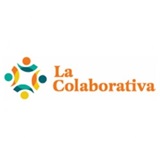By Nate Mackinnon, Executive Director, Massachusetts Association of Community Colleges
The Massachusetts Association of Community Colleges (MACC) greatly appreciates the call to action within “Catapult Revisited” and is grateful for the continued work of the Boston Foundation, Jerry Rubin and JVS in highlighting vital concepts as we all strive for a more just society while meeting the current economic and workforce development needs throughout Massachusetts. As leaders in workforce development, it is more important than ever to be champions for an inclusive and equitable economy that also appreciates the value of in-demand jobs providing livable wages and upward mobility. “Catapult Revisited” showcases four key areas of focus: being market responsive, ensuring job quality, knowing your community, and advancing bold initiatives. We share belief in these principles, and we are proud that the community colleges in Massachusetts are uniquely positioned to support this vision.
Community colleges have a long track record in workforce development, and this success is no doubt related to being both flexible and adaptable to what employers are looking for. From programs that vary in length and can be both broken down and stackable, community colleges are able to respond directly to the needs of all employers. Customized workforce training enables us to meet the demands of both incumbent and burgeoning industries—and on their timeline.
Community colleges also value our role in ensuring that programs are creating pathways to quality jobs with livable wages. As we navigate toward the other side of a pandemic that has both worsened and catalyzed inequities, it will be incumbent on us all to ensure this focus on job quality as we develop programs and partner with employers. This is exactly why the portability of community college training is so important—the ability to offer stackable pathways for further programs or additional education through providing credit for prior learning.
And to meet the challenges of this economic recovery, there is no doubt that a localized approach, by knowing your community, is required to meet the needs of regional economies. And “community” is our middle name for a reason. With campus locations stretching across the Commonwealth—from Cape Cod to the New York border—we are embedded into the cultural fabric of the communities and regions we serve. Our on-the-ground approach is integral to meeting the varying and evolving needs of employers and regions.
Finally, as the call to action in “Catapult Revisited” lays out, we must advance big and bold initiatives to meet this moment. Community colleges are the engine of equity, gateway to opportunity, and the catalyst to the economic recovery. As we have seen throughout the pandemic, our institutions have been on the front lines with communities of color, immigrant communities, and so many underserved populations across the Commonwealth. To combat inequities, especially among those facing the greatest barriers, the community colleges see a massive opportunity for an investment in reskilling, upskilling and innovative career pathways from state and federal policymakers. We look forward to working with our partners to continue to push forward this “Next Generation” of workforce development.


